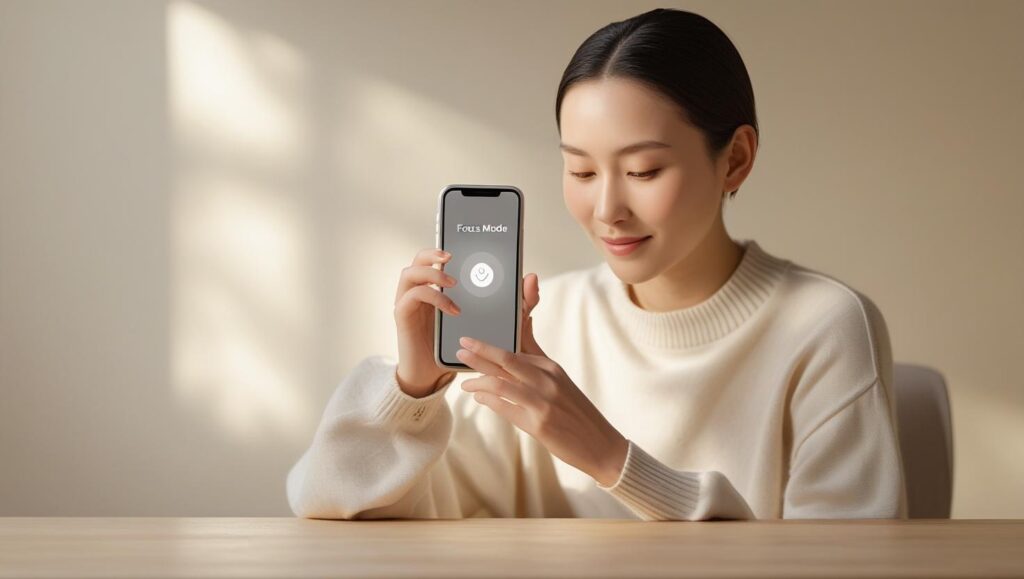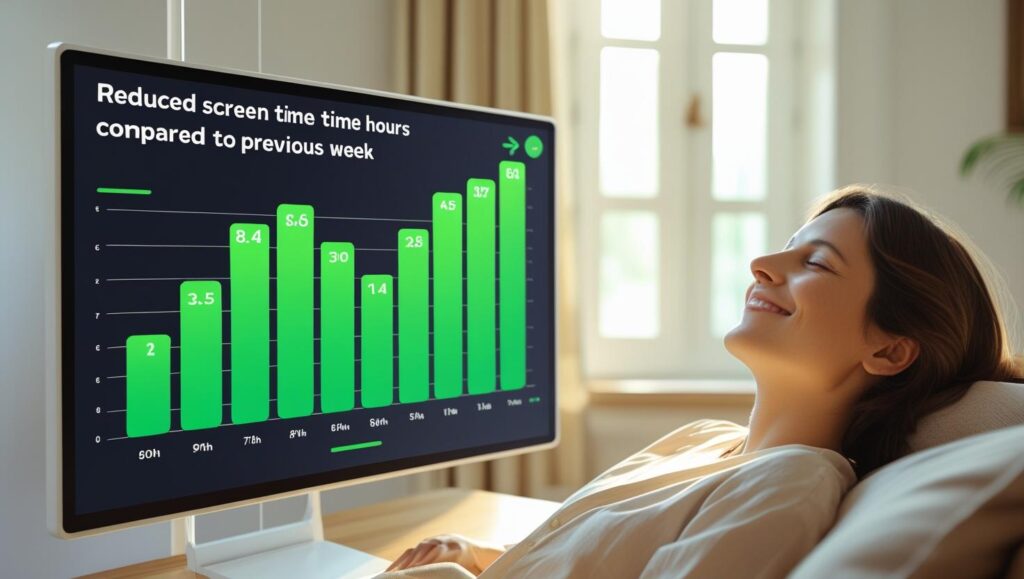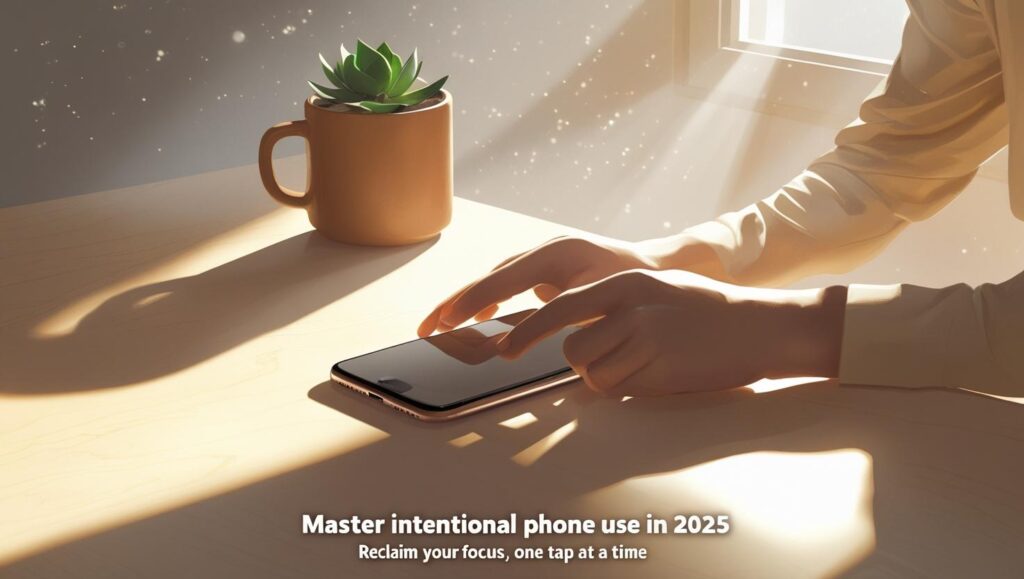Intentional phone use is no longer optional—it’s essential. In a world dominated by endless scrolling, constant notifications, and digital overwhelm, our smartphones—once tools of productivity—have quietly become tools of distraction, so mastering intentional phone use helps us protect our focus and mental energy. At the intersection of digital well-being and conscious living, learning to control our attention has become a modern survival skill. It’s time to stop letting our devices dictate our days and start using them with clarity and purpose.
Before you change how you use your phone, it’s worth examining your daily habits in detail. Check out our post on Minimalist Habits That Will Simplify Your Life to begin decluttering your routines—both digital and physical.
Understanding the Digital Grip: How Phones Hijack Our Attention
Our phones are engineered to be addictive. The combination of variable rewards (like social media likes), endless scroll, push notifications, and dopamine feedback loops are designed to keep us engaged. Practicing intentional phone use means interrupting that automatic behavior. It’s about creating boundaries that support real-world presence and attention.
We check our phones an average of 96 times a day, often without realizing it. The cost? Reduced focus, increased anxiety, poor sleep, and fragmented attention spans.
To reclaim control, we must understand that intentional phone use isn’t about abandoning technology—it’s about creating a conscious relationship with it.
Why Intentional Phone Use Matters in 2025

Intentional phone use helps us:
- Improve mental clarity and emotional regulation
- Increase productivity and focus
- Enhance real-life relationships
- Sleep better and reduce stress
In 2025, success and fulfillment increasingly depend on how well we manage our attention—and our phones are often the biggest obstacle to that.
Signs You’re Using Your Phone Unintentionally
If you’re unsure whether your phone habits are problematic, here are red flags:
- Reaching for your phone first thing in the morning and last thing at night
- Endless scrolling without remembering what you consumed
- Feeling anxious or irritated when your phone isn’t near
- Constantly switching between apps and losing track of time
- Ignoring real-life conversations in favor of screen time
Awareness is the first step to mindful phone use.
Studies show that bedtime screen time can significantly reduce sleep quality—users who scroll before bed sleep nearly 24 minutes less per hour of screen time—underscoring the importance of intentional phone use.
Step-by-Step Guide to Mastering Mindful Phone Use
1. Perform a Digital Audit
Start by identifying how you currently use your phone:
- Use the screen time tracker on your device to get real data
- Identify the most used apps and peak usage times
- Note how often you unlock your phone and why
This creates the foundation for intentional changes.
2. Curate Your Home Screen for Intentional Use

A cluttered home screen triggers impulsive behavior. Redesign it to reduce distractions:
- Remove social media and entertainment apps from the home screen
- Place only essential tools like calendar, notes, or mindfulness apps
- Use folders to hide non-essential apps deeper
Less visual temptation means less mindless tapping.
3. Turn Off Non-Essential Notifications
Notifications are designed to hijack your focus. Most of them are unnecessary.
- Keep notifications only for calls, texts, and calendar reminders
- Disable social media, shopping, and email alerts
- Use Focus Mode or Do Not Disturb during work or family hours
Interruptions kill momentum. Protect your attention like it’s sacred.
4. Set App Time Limits and Intentional Usage Windows
Use your phone’s built-in tools (like Screen Time or Digital Wellbeing) to enforce discipline:
- Limit entertainment or social apps to 30–45 minutes a day
- Create tech-free time blocks, especially in the morning and before bed
- Replace idle scrolling with a 10-minute walk, reading, or journaling session
These boundaries make you a conscious user, not a passive consumer.
5. Create Tech-Free Zones in Your Environment
Where we place our phone influences how we use it.
- Designate areas like the bedroom, dining table, and bathroom as phone-free
- Invest in a real alarm clock to keep your phone out of the bedroom
- Store your phone out of sight during deep work or family time
Out of sight, out of mind—literally.
6. Adopt a “Use With Purpose” Mindset
Before unlocking your phone, pause and ask:
- Why am I using my phone right now?
- What do I need to do?
- What will I gain from this action?
When the intent is clear, you regain agency. If you’re unsure—don’t unlock it.
7. Replace Digital Compulsions with Mindful Routines
Phones often fill emotional or attention gaps. Replace those with real habits:
- Feeling bored? Try breathwork or reading instead of scrolling
- Lonely? Call a friend instead of lurking on social media
- Stressed? Do a 2-minute stretch or listen to calming music mindfully
Replace autopilot habits with grounding rituals.
The Role of Tech Tools in Mindful Usage
Ironically, some apps can help you reduce screen time:
- Forest: Stay focused by planting virtual trees when not using your phone
- One Sec: Adds a pause before opening addictive apps
- Freedom or StayFocusd: Block distracting apps during work hours
- Insight Timer: Cultivate mindful routines with meditation
Technology should serve us, not enslave us.
How Intentional Phone Use Transforms Your Life

When we shift from unconscious scrolling to conscious interaction, we:
- Gain clarity in decision-making
- Deepen relationships by being present
- Recover lost creative energy
- Sleep better and wake up refreshed
- Improve self-esteem by staying aligned with our values
In a world that rewards distraction, focus is a superpower—and it starts with practicing intentional phone use.
Final Thoughts: You’re Not Addicted to Your Phone—You’re Disconnected from Yourself

Most of us don’t have a tech problem—we have a presence problem. Intentional phone use is the bridge between the digital world and our real lives. It’s not about cutting off from technology; it’s about showing up fully and authentically in your life. Practicing intentional phone use helps us reconnect with what truly matters, both online and offline.
Choose to scroll with intention, to pause with purpose, and to engage with awareness in every digital interaction.
